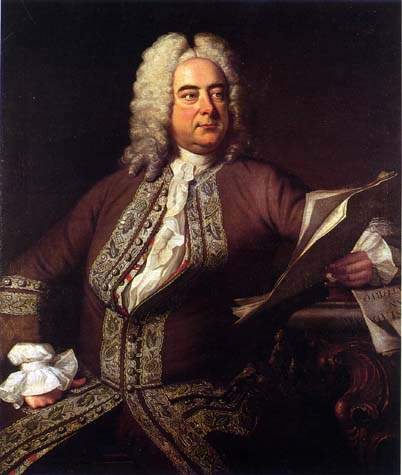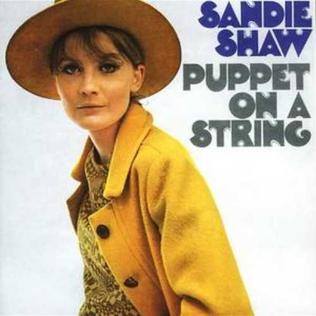Händel - Agrippina
Théâtre des Champs Elysées, Paris, Wednesday May 15 2013
In concert
Conductor: Eduardo López Banzo. Agrippina: Ann Hallenberg. Nerone: Vivica Genaux. Poppea: María Espada. Ottone: Carlos Mena. Claudio: Luigi De Donato. Pallante: Enrique Sánchez Ramos. Lesbo: Elías Benito. Narciso: José Hernández Pastor. Al Ayre Español.
It may sound unlikely, but the little corner of the baroque music world I have access to via Facebook has been hooked, over the past few days, on the Eurovision semi-finals. This includes at least one (who admitted to watching in pyjamas in bed – probably with a beer in one hand and a bag of crisps in the other), maybe more and possibly all of those singing in Agrippina at the Champs Elysées on Wednesday.
So…
… here are We Left At The Interval's votes for the Agrippina Song Contest.
 |
| Händel |
Just as, not so long ago, if you saw Béatrice Uria-Monzon it had to be Carmen and if you saw Carmen it was bound to be Béatrice Uria-Monzon, so Ann Hallenberg seems to be making Agrippina her own. I have recently seen her in nothing else. Not that that’s a bad thing: with so much practice, you can imagine her absolute fluency the other evening, not only musically but dramatically (she made a regal - though of course conniving - Agrippina; Vivica Genaux, on the other hand, in tiny stilettos, didn't look a bit like a man). Her phrasing, her sculpting of individual sounds, her expressiveness, are peerless. Hers is, as we know, a round, mellow, velvety voice, contrasting nicely with Vivica Genaux’s brighter, sharper sound and faster vibrato. Both are of course world class, and (as we are in contest mode) I should imagine the speed at which Vivica Genaux took “Come Nubo” beats any previous world record. It certainly beats me how you handle such runs at such speed with such accuracy, legato yet perfectly legible. Sandie Shaw didn’t do it in Puppet on a String, as I remember...
Ten points go to Luigi de Donato and Maria Espada - Luigi de Donato et Maria Espada, dix points.
De Donato is new to me. He has an elegant, eloquent Händel bass voice, clear and resonant and in control. He’s also en expressive comic actor, which certainly doesn’t go without saying but certainly came in very handy. He has presence. María Espada is also new: a bright, silvery soprano. Her voice isn’t huge and she doesn’t yet have the absolute mastery of a 12-point Hallenberg or Genaux, but if she isn’t singing Cleopatra now I imagine she soon will, provided the house isn’t too big.
Eight points go to Carlos Mena and Enrique Sanchez Ramos - Carlos Mena et Enrique Sanchez Ramos, huit points.
Actually I’d have given Mena nine, but the rules don’t allow it seeing how De Donato and Espada drew at ten, so it’s eight each. Mena is a moving singer and won the audience over as a moving Ottone, so he gets full marks for expressiveness, but technically there’s still a bit of work to do and the part sat awkwardly astride his passagio, if you’ll pardon the expression. Enrique Sanchez Ramos is a reliable baritone: no messing around, just everything there where it was supposed to be.
Six points to Eduardo Lópes Banzo and his band (Eduardo Lópes Banzo et El Ayre Español, six points) comes across as ungenerous, but you can’t go dishing out eights to everybody and this is not so much a Rolls-Royce baroque orchestra as a solid station wagon from a more everyday marque. They had a nice, caramel overall sound, but not a great deal of variety of colour; and the conductor didn’t always keep them under control – we had one or two decidedly undisciplined entries. As the overture struck up, at a very stately pace, I though we might be in for a painfully long evening; but Lópes Banzo was, on the contrary, demandingly zippy at times: while Vivica Genaux rattled off “Come Nubo” with aplomb, the woodwind had a hard time keeping up.
Meanwhile, down the other end of the scale… I won’t say which, but one of the remaining singers had, as the French say, all the charisma of an oyster – and what might for all I know (I’ve heard Strauss’s Omniscient Mussel, of course, but never an oyster) be a voice to match. This won’t be the first time I’ve mentioned what seem to me bizarre disparities in casting that still occur in baroque performances - a phenomenon that’s amplified whenever twelve-point song-contest-winners like Ann Hallenberg and Vivica Genaux find themselves on stage with their juniors. There were therefore times, I must admit, during some of the men’s arias, when my mind wandered. It was the women’s evening, undeniably.




Comments
Post a Comment